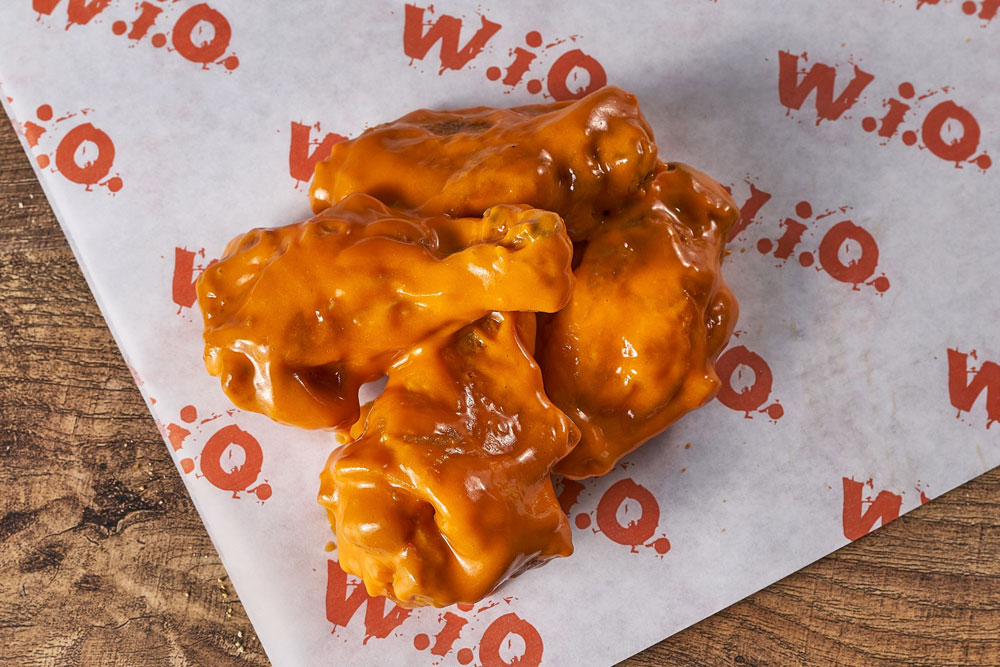By Charlie Pogacar
A lawsuit, filed by a consumer in California, claims that a tomato seller is tricking people into believing they are buying San Marzano tomatoes when they are, in fact, not. The company, Simpson Imports, argues that its packaging clearly labels the tomatoes as “San Merican.”
A federal judge ruled that the woman has a compelling enough case for the lawsuit to proceed in court, as first reported by the New York Times. The ruling came after lawyers for Simpson Imports had filed a motion to dismiss the case.
Andrea Valiente, the woman who filed the suit, claimed Simpson Imports had “used highly misleading tomato packaging to trick consumers into believing they are purchasing genuine San Marzano tomatoes, at San Marzano prices.”
Related: This Top-Rated Pizza Spot Says It Doesn’t Serve Pizza At All
The company countered that it deliberately moved away from specifically using the language “San Marzano” on its cans about nine years ago. It now markets its tomatoes as “San Merican Tomatoes,” which are a “proprietary blend of Roma tomatoes.”
As reported by the Times, the current cans used by Simpson Imports have a distinct “S.M.T.” abbreviation on them, with very small writing that says “an” in the “S” to complete the word “San,” “erican” inside of the “M” to complete the word “Merican” and “omatoes” in the T to complete the word “tomatoes.”

(EveryMarket)
The cans also feature graphics of “tomatoes that resemble the oblong shapes of San Marzanos,” illustrations that are apparently very similar to the ones used by Simpson Imports prior to changing its marketing nearly a decade ago. As reported by the Times, Simpson Imports said in a statement that the tomatoes were “a hand-drawing of a Roma tomato that the company’s founder did when he was a child.”
Judge Araceli Martinez-Olguin, the federal judge overseeing the lawsuit, said in her order, originally reported by Courthouse News Service, it was “plausible” that somebody like Valiente would “reasonably believe that Simpson’s tomatoes are San Marzano tomatoes.” She pointed out that the price of the tomatoes Simpson Imports offers are higher than rivals, which “contributes to the plausibility of a consumer’s expectation that Simpson’s tomatoes are San Marzano tomatoes.”
As many pizza makers know, San Marzano tomatoes are some of the most sought-after tomatoes in the world. A variety of the Roma tomato grown in the Campania region of Italy, San Marzanos are particularly attractive to pizza makers who treasure bold, flavorful taste. They have also been designated as one of two tomato varieties that can be used on “true Neoplitan pizza.”
The European Union has regulations in place to protect the “designation of protected origin” (or D.O.P.) of “true San Marzano tomatoes.” A separate New York Times piece claimed that Italian authorities confiscated 1,000 tons of counterfeit San Marzano tomatoes in a single year.
In the U.S., the regulations are not as stringent. Many tomato makers have long labeled their tomato products as “San Marzano-style,” or “use ‘San Marzano’ without the official European certification,” according to the Times. This contributes to confusion among consumers and pizza makers stateside—how can they trust if they’re getting the real deal?
According to one independent pizzeria owner who spoke on the condition of anonymity—and was not directly referencing the Simpson Imports lawsuit—the origin of San Marzano tomatoes has long been an open question to U.S. pizza makers.
“I’d guess that 95 percent of Americans who think they have had San Marzano tomatoes have not,” they said. “It’s such a small patch of land that a true San Marzano tomato can be grown on, it can’t possibly supply the whole world with San Marzanos.”














